Have you ever struggled with irregular verbs in English? Don’t worry, you’re not alone! One of the trickiest aspects of English grammar is mastering present perfect irregular verbs.
These verbs don’t follow the typical -ed pattern for past participles, so they require a bit of extra attention. But once you get the hang of them, you’ll be able to communicate more effectively and sound more fluent in English.
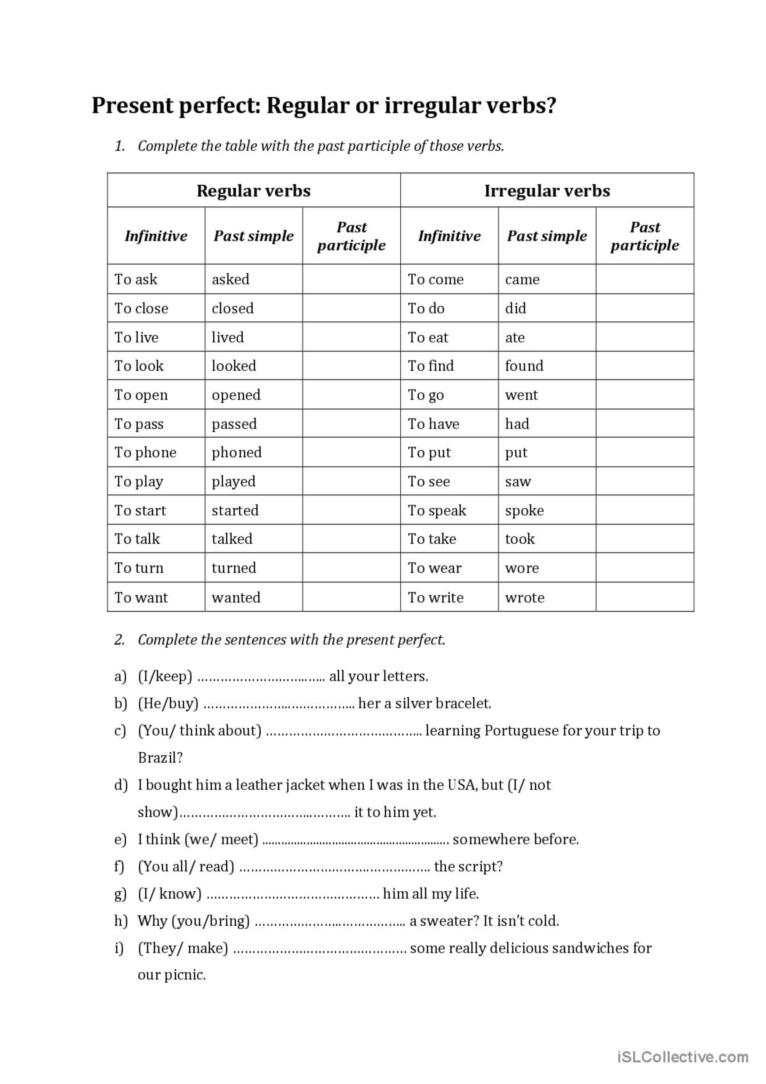
present perfect irregular verbs
Mastering Present Perfect Irregular Verbs
One of the most common irregular verbs in English is “to be.” Instead of saying “I goed to the store,” you would say “I have gone to the store.” Other examples include “eat” (ate), “do” (done), and “go” (gone).
It’s important to memorize these irregular forms and practice using them in sentences. The more you practice, the more natural they will become to you. Reading and listening to English speakers can also help reinforce your understanding of irregular verbs.
Don’t be discouraged if you make mistakes along the way. Learning a new language is a process, and everyone makes errors. The key is to keep practicing and not give up. With time and dedication, you’ll become more comfortable using present perfect irregular verbs.
So next time you come across an irregular verb in English, don’t panic! Remember to take a deep breath, recall the correct form, and use it confidently in your sentence. Before you know it, using present perfect irregular verbs will be second nature to you.
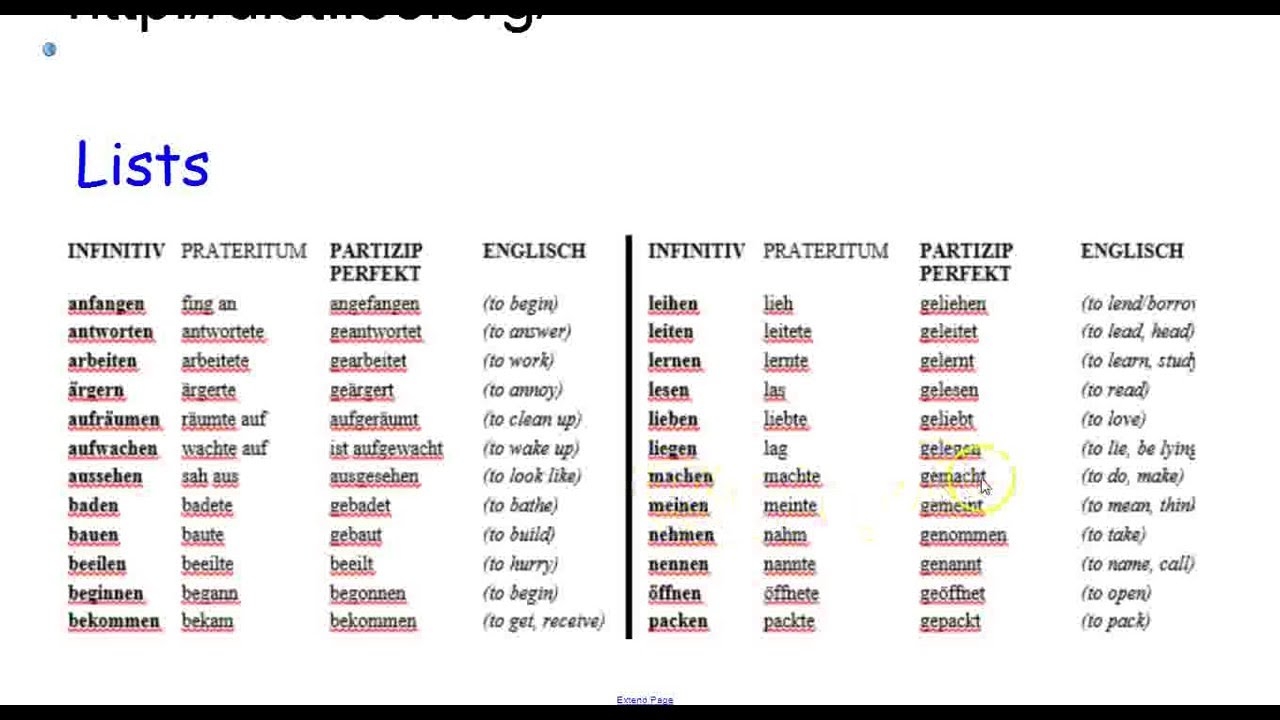
German Grammar Present Perfect Tense Irregular Strong Verbs How To Look Up Past Participles YouTube

PRESENT PERFECT IRREGULAR VERBS ESL Worksheet By Katiana
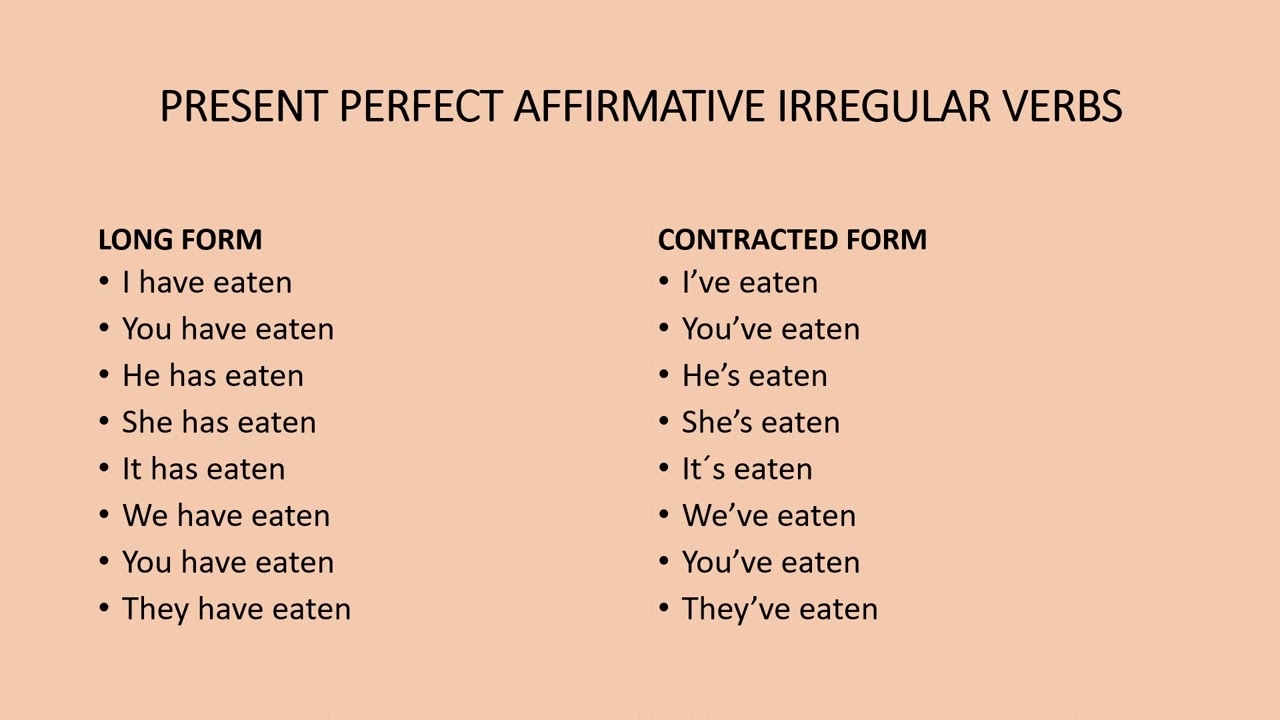
PRESENT PERFECT YouTube
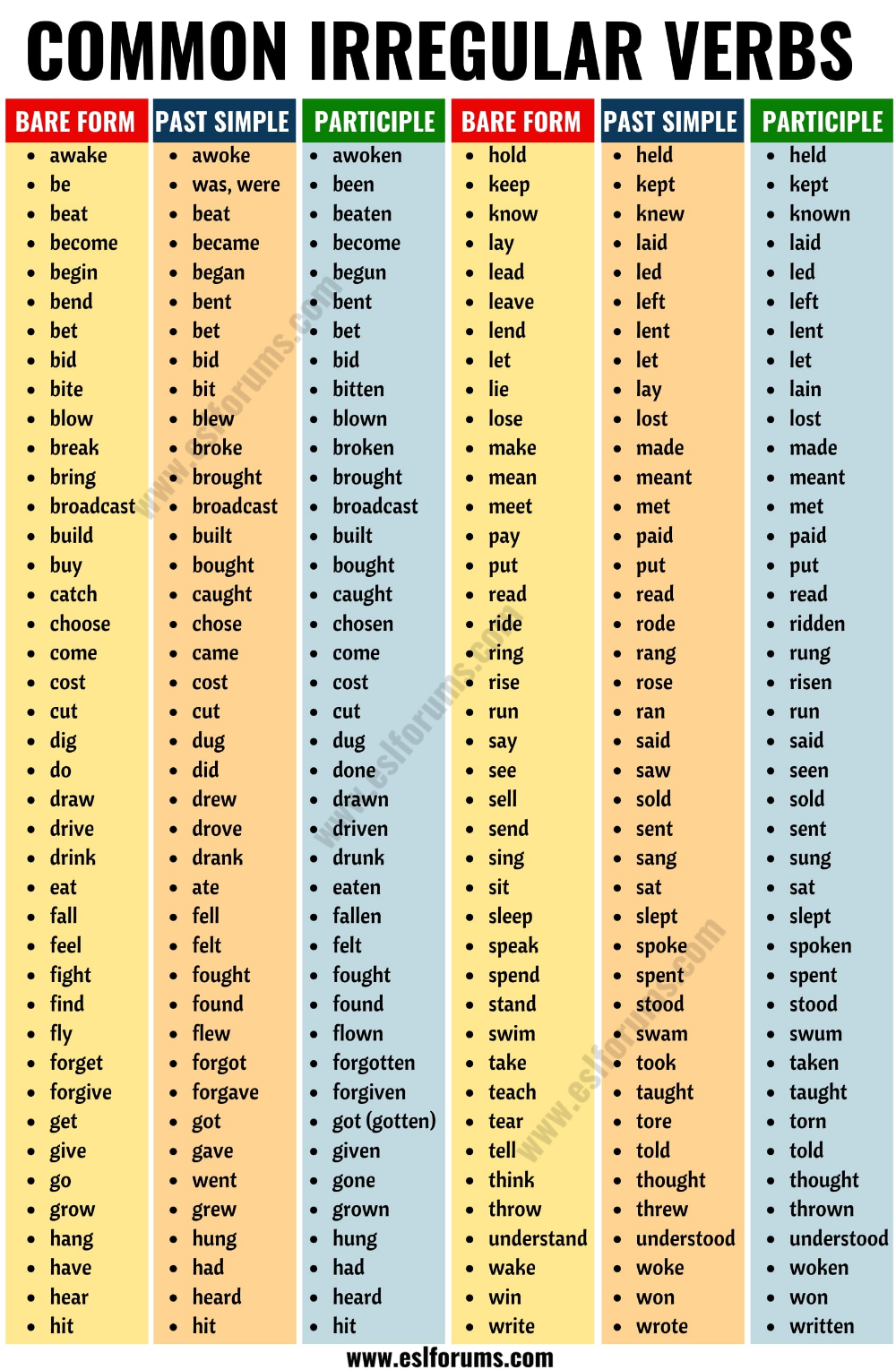
English Lab Present Perfect
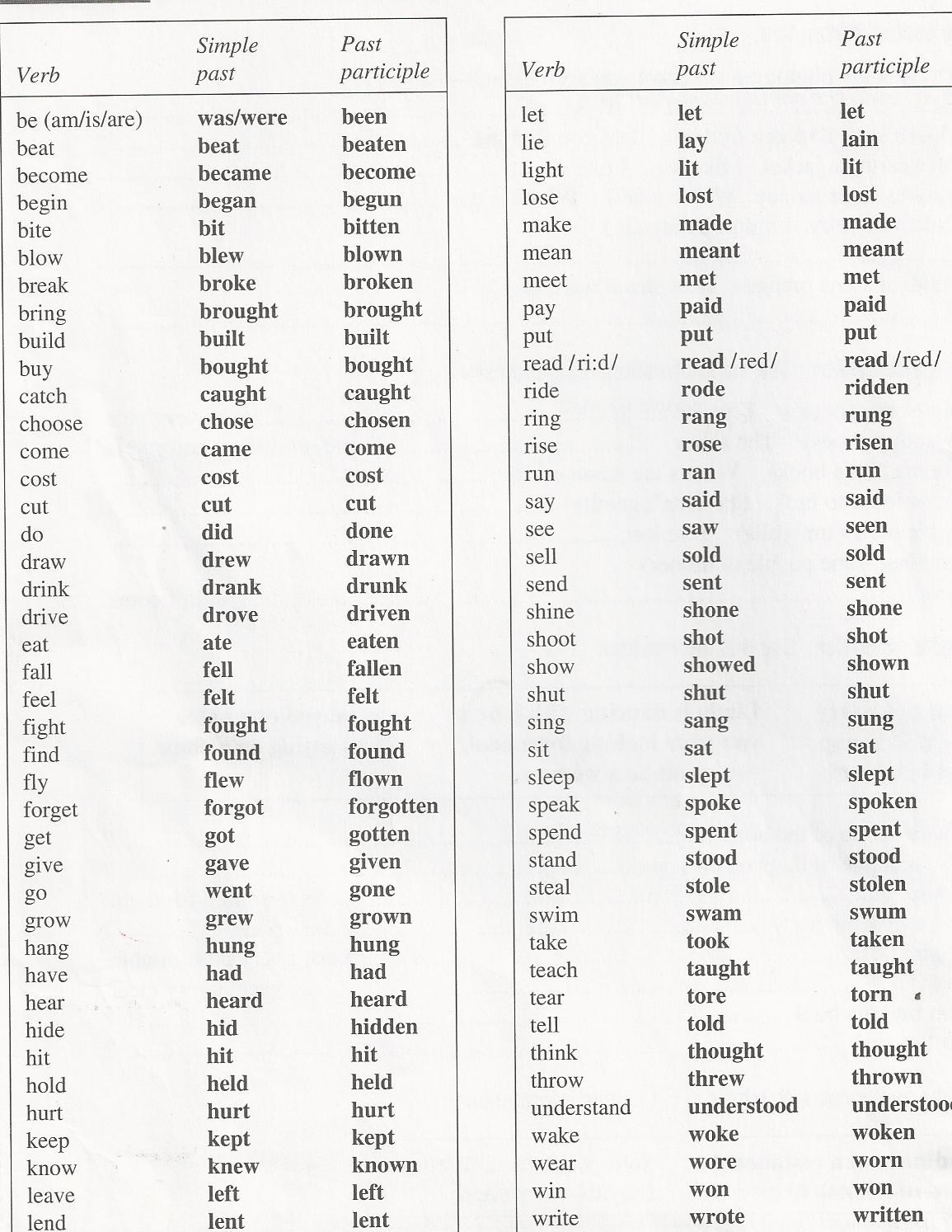
Present Perfect The Scariest Tense Of All Fostering Fluent English
